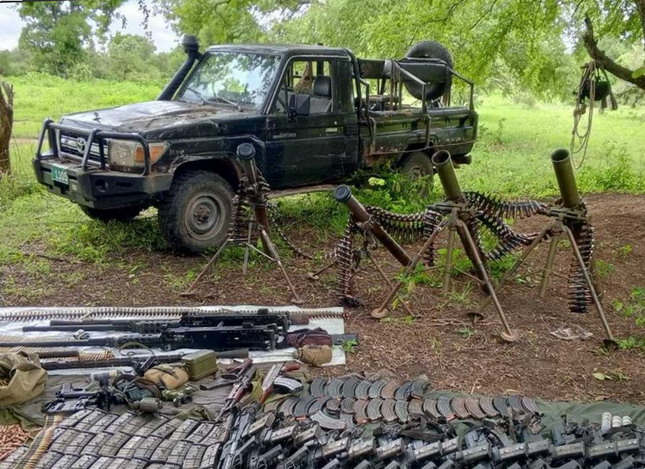Last year saw more than 3 400 terror attacks in Africa with a fatality count in excess of 13 900, the United Nations Security Council (UNSC) heard on Tuesday 21 January during a meeting to strengthen counter-terrorism on the continent.
The numbers were put to the 15 member UNSC by African Union (AU) Commissioner for Political Affairs, Peace and Security, Ambassador Bankole Adeoye. A UN report on the meeting has it Adeoye said the continental bloc “has recalibrated its strategic approach to the dynamics of terrorism” in addition to “retooling” policy instruments, especially given projections of a 10 to 15% escalation in terrorism this year.
Opening the meeting, convened by Algeria, UNSC January president Amina Mohammed is reported as saying “Africa tragically remains the epicentre of global terrorism”. The world body’s Deputy Secretary-General urged more action to combat “this scourge”.
Terrorism, according to her, is the most significant threat to peace, security and sustainable development across Africa today with sub-Saharan Africa accounting for 59% of global terrorism related deaths. Mohammed told the UNSC – one of six main UN organs with the primary responsibility of maintaining international peace and security – that the Sahel is ground zero for “one of the most brutal crises in the world”. “Terrorism related deaths in the region have soared past 6 000 for three consecutive years, making up more than half of all global fatalities.”
Burkina Faso leads the world in terrorism deaths with what is reported as “a staggering 68% increase”. The spread of Al-Qaeda and ISIL (Islamic State of Iraq and the Levant) affiliates to West African coastal countries saw a 250% increase in violent attacks over a two year period.
“Meanwhile a new group known as Lakurawa is conducting cross-border attacks in north-west Nigeria, Niger and Chad. There are also growing risks of infiltration and radicalisation along Ghana’s northern regions, as well as in Togo, Côte d’Ivoire and Nigeria.”
The terror threat persists elsewhere with groups including al-Shabaab in Somalia, the Allied Democratic Forces (ADF) in Democratic Republic of Congo (DRC) and Ahlu Sunna Wal Jama in Mozambique, continuing to “unleash horrific violence”.
Mohammed added these groups not only terrorise communities they also commit sexual and gender-based violence, as well as assaulting children and forcibly recruiting them into their ranks.
She warned, ominously: “Let us make no mistake. At this rate, in West Africa, the future is at stake. The marginalisation of youth, coupled with soaring unemployment, has left an entire generation vulnerable to extremist groups”.
“If we don’t act, we risk losing this generation to the horrors of terrorism, their futures stolen before they even have a chance to begin.”
To effectively counter terrorism, Mohammed sees innovation as essential with an approach centred on respect for human rights and the rule of law.
“Now it’s time to meet unmet commitment and implement the promises made in the Pact [for the Future, adopted in September by UN member states] with determined action.”
She listed three priority areas starting with addressing the drivers of terrorism, which “thrives on fragility and feeds off poverty, inequality and disillusionment” and stressing the need for “human rights-based approaches to counter-terrorism, grounded in accountable and inclusive institutions.” Finally, she highlighted the importance of regional co-operation and ensuring these efforts are “in lockstep, unified in purpose and aligned in strategy.”




